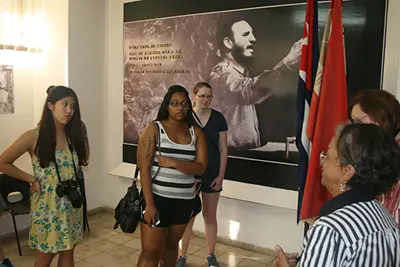Honors Students Learn About Basque History and Culture in Spain
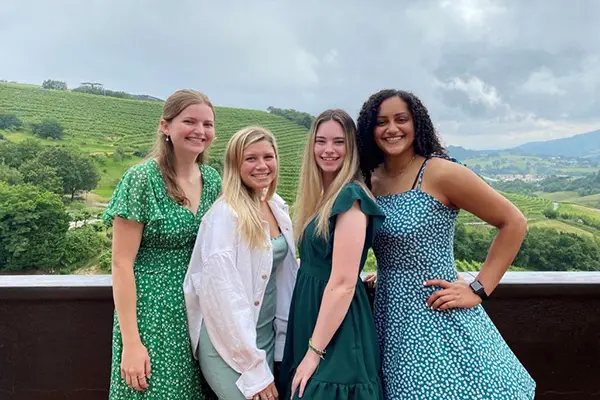 Image by Ashley Walsh
Image by Ashley Walsh
07/23/2021
By Katharine Webster
Honors nursing major Nora Tracey experienced two roller coaster rides this year.
The first was the roller coaster of plans and emotions, as she waited to find out whether the Honors College’s study abroad program in San Sebastian, Spain, would be given the green light. After months of uncertainty because of the pandemic, Europe lifted most restrictions on vaccinated American travelers, and the program was given the go-ahead.
The second was on the “Swiss Mountain” roller coaster atop Mount Igueldo when she got to San Sebastian.
 Image by Nora Tracey
Image by Nora Tracey
The spectacular views of the Basque city and coastline from the roller coaster and a visit afterward to view Eduardo Chillida’s “Comb of the Winds” sculptures gave her a whole new perspective on the city and study abroad. The three sculptures are often interpreted to represent past, present and future.
“It reminded me to be present in the moment and not to be thinking so much about what I’m going to do when I get home or what I have to complete while I’m there, but to just go with the flow of the experience,” Tracey says.
For the first time since the COVID-19 pandemic shut down all in-person international experiences, Tracey and nine other Honors College students embarked on a three-week Spanish and Basque Cultural Immersion program in late June, led by Honors Visiting Prof. Julian Zabalbeascoa. It was the first of three sessions of the course, the only UMass Lowell group study abroad program to resume this summer.
In San Sebastian, students study Spanish at the Lacunza school from 9 a.m. to 1:30 p.m. each weekday and visit historical sites, go on cultural excursions and explore independently in the afternoons and on weekends.
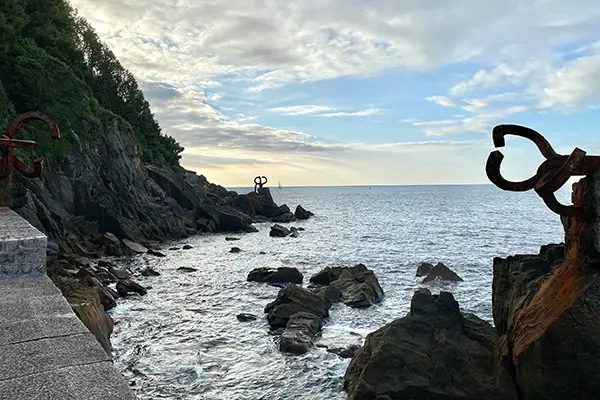 Image by Nora Tracey
Image by Nora Tracey
Some features from past trips – a Basque cooking class, a Basque dance class, and a chance to dress up in traditional Basque costumes – were suspended this summer due to COVID-19-related restrictions. But Zabalbeascoa, who is of Basque heritage, added more outdoor activities and talks, neighborhood walks, and culinary explorations in a city that is renowned worldwide for its food.
There was an upside to the public health restrictions, says honors business major Jennifer Dossantos, a rising junior and an Immersive Scholar who, like Tracey, had planned to go to San Sebastian last summer before the program was cancelled.
“Prof. Zabalbeascoa had told us that usually it’s really packed in the summertime with tourists, but this summer we could enjoy it and have it not be as crowded,” Dossantos says.
For Zabalbeascoa’s class, students read two books: “All That Followed,” a novel by Gabriel Urza that focuses on the ETA, the Basque separatist and terrorist movement; and a cookbook named by The New York Times as one of the best of 2018. The students met Marti Buckley, the author of “Basque Country,” in San Sebastian.
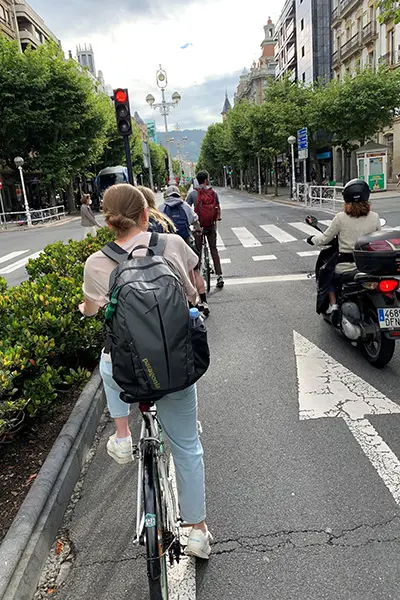 Image by Nora Tracey
Image by Nora Tracey
Dossantos says she especially appreciated Buckley’s cookbook, which includes descriptions of Basque culture and local food sources. Dossantos, not normally an adventurous eater, tried a variety of Basque “pintxos,” or small plates, such as Gilda peppers, anchovies and olives on a skewer.
“I tried pig’s ear, snails and blood sausage. I ate it, and I’m proud that I ate it, but I ate it just once – I didn’t enjoy it,” she laughs.
Her favorite part of the program was the Spanish classes at Lacunza, because she got to know students from Hong Kong, Russia, Australia, Germany and Texas.
The honors students also got a special lesson in Euskara, the Basque language, which is unrelated to any other language. The simple act of saying “Hello” or “Thank you” in Euskara opened doors and elicited warm smiles, she says.
Although all three sessions of the course filled up months in advance, it was touch and go until May as to whether the program would go forward, Zabalbeascoa says. He largely credits the Lacunza school, UML’s director of international experiences and study abroad, Fern MacKinnon, the provost’s office and the UMass system for doing everything they could to make it possible – and safe.
“The wonderful thing about travel, especially when you’re young, is that you become passionate about exploring the world and exploring yourself in the world, and so students who travel with me tend to go off and have other international travel experiences and, I believe, lead a far richer life as a result,” he says. “I didn’t want a whole other year of students having to go without that opportunity.”
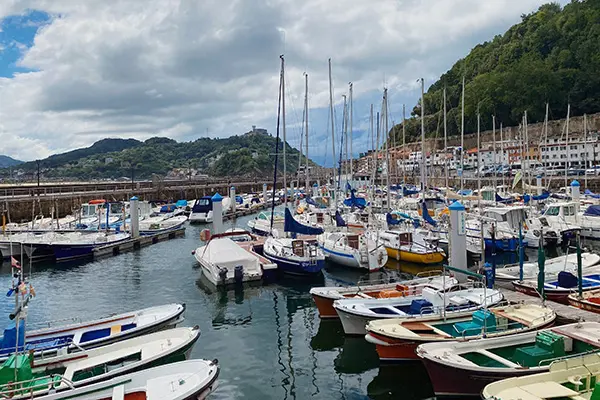 Image by Nora Tracey
Image by Nora Tracey
Lacunza helped with logistics, including arranging for the students to stay in single rooms in an international dormitory that also provided meals. In years past, students stayed with host families, but that was judged too risky this year.
The first of the three sessions went off without a hitch, besides some rainy days, and many entry requirements had been eased by the start of the second session, MacKinnon says.
Tracey had never heard of the Basque region, which spans the Spanish-French border, before going to an information session on the honors study abroad program in fall 2019 as a first-year student.
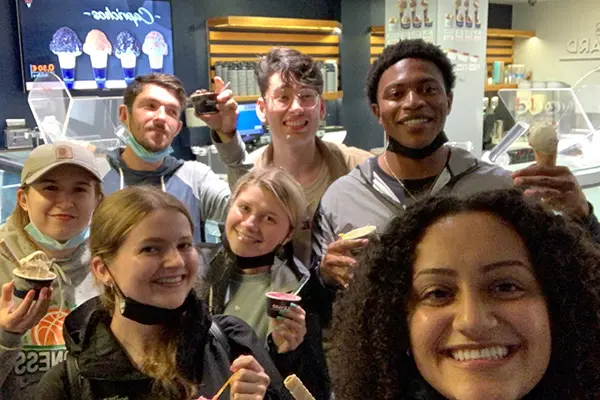 Image by Jennifer Dossantos
Image by Jennifer Dossantos
She was so intrigued that, when her study abroad plans were dashed by the pandemic last summer, she decided to sign up for Zabalbeascoa’s online spring semester course, “Basque in the Glory of it All,” which delved more deeply into Basque history, including the Nazi occupation and the Basque resistance movement during World War II.
That class made this summer’s experience even better, Tracey says.
But her favorite aspect of the trip was getting closer to the other students, many of whom were also nursing majors, through their shared experiences – a realization that struck her the day they all rode the roller coaster on Mount Igueldo.
“It was the end of our first week, and everyone was getting to know each other better. We saw the city in a new way, and we also saw the study abroad experience in a new way,” she says. “It was awesome.”




